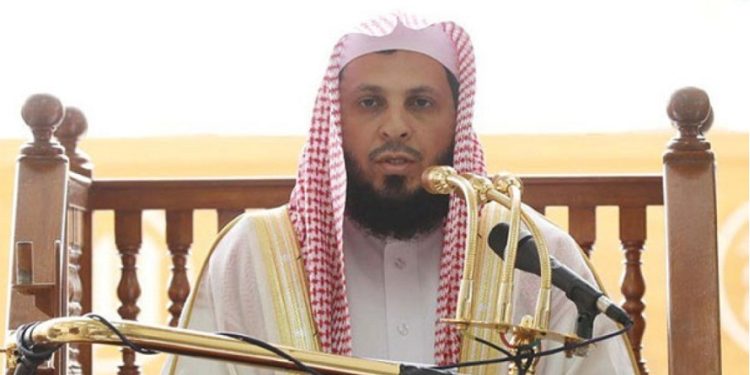One year after Mecca’s Holy Mosque Imam and preacher arrest

A campaign of solidarity was launched on social media sites coinciding with the one-year anniversary of the arbitrary detention of the Imam and preacher of the Holy Mosque, Sheikh Saleh Al-Taleb, in the prisons of the Saud House regime without legal support.
Activists tweeted on social networking sites, especially Twitter, with the tag # Saleh_al_Taleb_lis_criminal in order to expose the crime of his continued detention, and to pressure the authorities of the House of Saud for his immediate release.
Saud House authorities arrested Sheikh Saleh Al-Taleb, the imam and preacher of Al-Masjid al-Haram, on August 7, 2018, because of a sermon by the preacher of Al-Masjid al-Haram about holding the doers of bad deeds accountable.
Al-Taleb, also a judge in the district court in Mecca, is a member of the religious movement loyal to the ruling family. But, his criticism of the policy of Crown Prince Mohammed bin Salman in his sermon made him vulnerable to arrest despite the symbolism of his position.
The Sheikh Al-Talib had called in one of his recent speeches on what he described as oppressors tyrants.
The last tweet of Sheikh Al-Taleb hours before his arrest, where he went to the pilgrims on the occasion of the day of perfusion, and put a section of his sermon in the Grand Mosque in Mecca.
Rights activist Yahya Asiri said the Saud House authorities were arresting anyone who criticized them for any of thier actions.
Asiri added that the arrest of Sheikh Saleh was due to his sermon or other reason, as the Saudi authorities target every influential person with a public presence in the Kingdom, even those who did not express an opinion.
Activists spread the news of the arrest of the preacher of the Masjid al-Haram, a great interaction of pioneers of Twitter, and overshadowed the most comments condemning this arrest.
Sheikh Saleh is one of dozens of preachers, intellectuals and civilian activists detained by the Al-Saud authorities since September 2017.
The kingdom is secretive about the arrests and their reasons, but leaked information suggests that many detainees have been subjected to serious abuses, including torture, in order to force them to confess to crimes they did not commit or abandon their critical positions of the authorities.





